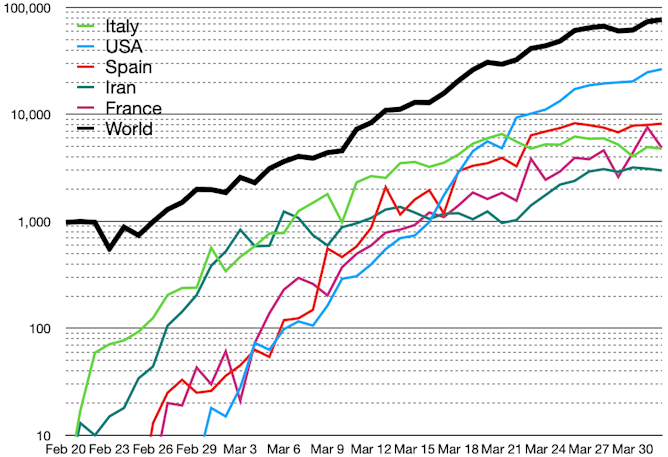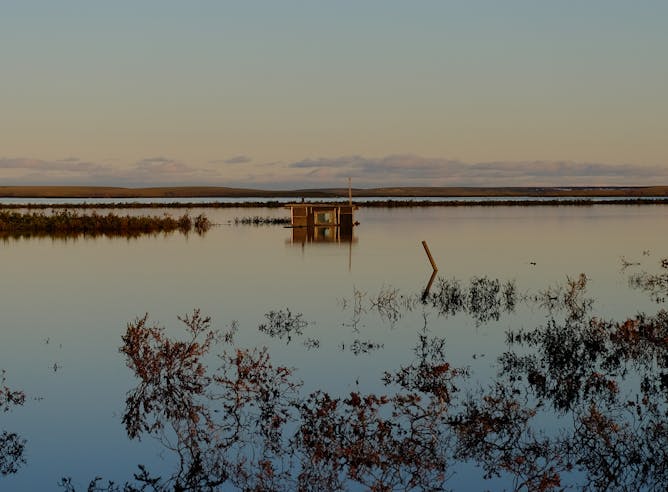Editor's note
|
|
One of the most asked questions when it comes to the coronavirus pandemic is which country has the best strategy for curbing the spread of COVID-19. Many of us are anxiously following the daily updates of ever rising death rates across the world, hoping to learn the answer.
But different countries have radically different approaches to testing, sampling and reporting. This leads to significant biases in the data, which can make country comparisons useless. If a country has a low death or infection rate compared to others, it is not necessarily because it is managing the virus any better or that the virus has infected fewer people. Luckily, there are ways to improve the modelling, something which should ideally
be done in parallel with random testing.
Also check out our long read about a strange paradox: the better we manage to contain the coronavirus pandemic, the less we will learn from it. That said, we may be able to change how we travel in the
future.
The pandemic has allowed many of us some much needed time to reflect on the human condition. Peter from Darlington wrote to us to ask whether racism and bigotry is in our DNA and, if so, why only some people battle with their instincts. You can read an insightful response by Tom Oliver as part of our Life’s Big Question series, which is co-published by BBC Future.
Perhaps the biggest existential question of our time is how to save the planet. New research shows that the Arctic is likely to be a major methane source in the coming decades – and it’s all down to recent carbon emissions.
|
Miriam Frankel
Science Editor
|

|
|
Top stories
|

New cases daily for COVID-19 in world and top countries.
Chris55 /wikipedia
Norman Fenton, Queen Mary University of London; Magda Osman, Queen Mary University of London; Martin Neil, Queen Mary University of London; Scott McLachlan, Queen Mary University of London
We need to update models on death rates or introduce truly random testing to understand the true impact of the coronavirus.
|

Friedmann Vogel/EPA
Maarten Boudry, Ghent University
The pitfalls of self-defeating prophecies.
|

BLACKDAY/Shutterstock
Tom Oliver, University of Reading
If we are not careful, the coronavirus pandemic could lead to a rise in xenophobic attitudes.
|

Joshua Dean
Joshua Dean, University of Liverpool
The wet and low-lying East Siberian Arctic is likely to be a major methane source in the coming decades.
|
Health + Medicine
|
-
Lowri Dowthwaite, University of Central Lancashire
'Post-traumatic growth' can make us stronger, more resilient and empathetic.
|
|
Arts + Culture
|
-
James Peacock, Keele University
Whether they are set in a country house or on the mean streets, detective novels tell us so much about human nature.
|
|
Education
|
-
Vicki Trowler, University of Huddersfield
Those who don't fit the model of typical 'imagined students' can lose out.
|
|
Environment + Energy
|
-
Marcus Enoch, Loughborough University; James Warren, The Open University
The transport sector could look very different after the pandemic.
|
|
Science + Technology
|
-
Derek Groen, Brunel University London; Ariana Zeka, Brunel University London; Imran Mahmood Qureshi Hashmi, Brunel University London
The questions researchers around the world are working on day and night.
|
|
Business + Economy
|
-
Jialu Shan, International Institute for Management Development (IMD); Michael Wade, International Institute for Management Development (IMD)
China is re-inventing ways to make online shopping more fun, and it's proving very successful indeed.
-
Bulent Gökay, Keele University
Turkey's economy was already struggling before the coronavirus pandemic hit. It has few options to limit the impact of the crisis.
-
Pushan Dutt, INSEAD
We cannot have a healthy economy without healthy people.
|
|
Politics + Society
|
-
Amina Chitembo, De Montfort University
It is unclear what happens to these people and their families should they get sick or worse still pass away in the line of duty.
-
Graham Farrell, University of Leeds; Nick Tilley, UCL
The fundamental change in how we are living will see criminals adapt and new targets emerging.
-
Despina Alexiadou, University of Strathclyde
Initially spoken of as a puppet chancellor, the newcomer seems to be coming out better from this crisis than other ministers.
-
Priyasha Kaul, Ambedkar University Delhi
In a deeply fragmented society like India, social distancing has reinforced existing class and caste hierarchies.
|
|
| |
| |
| |
| |
| |
| |
|
|